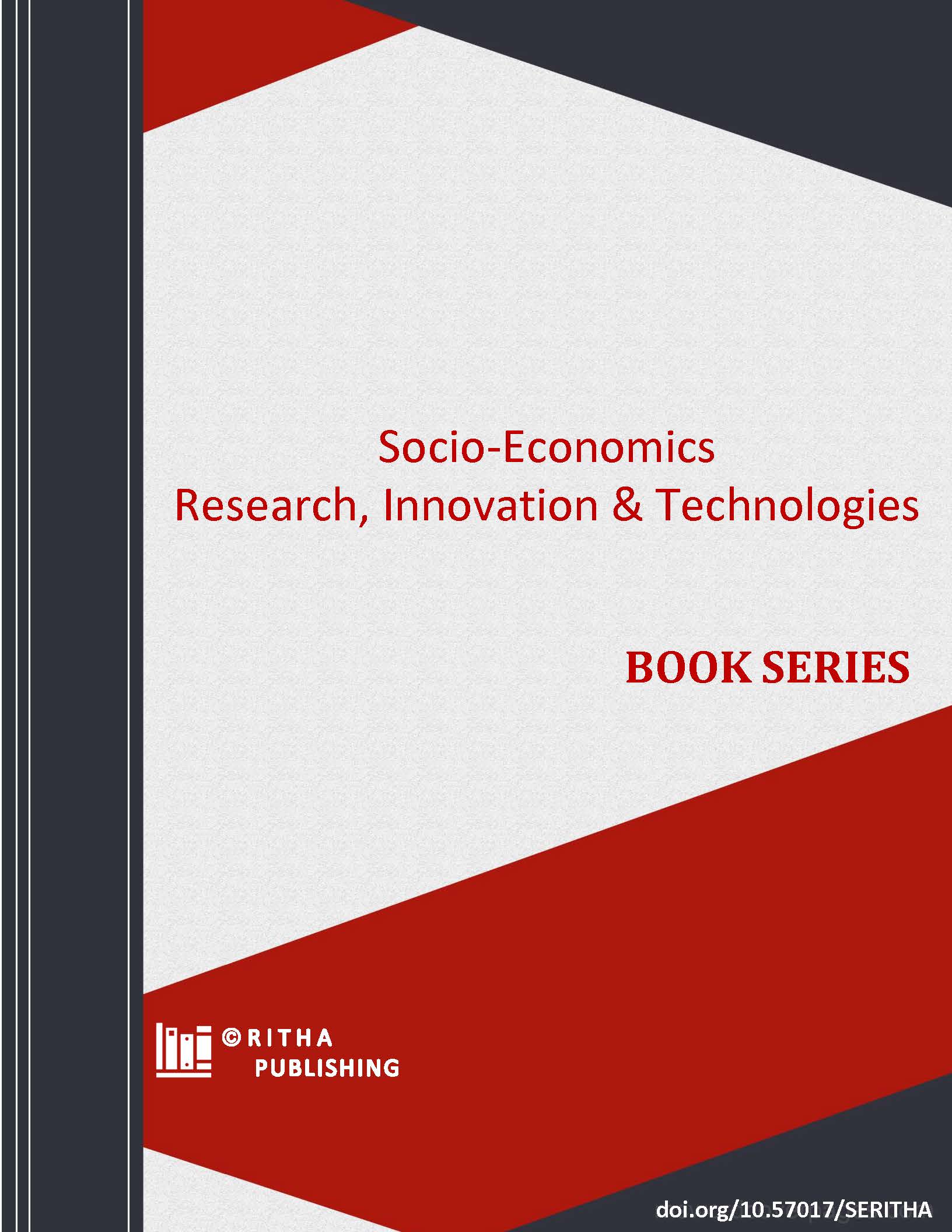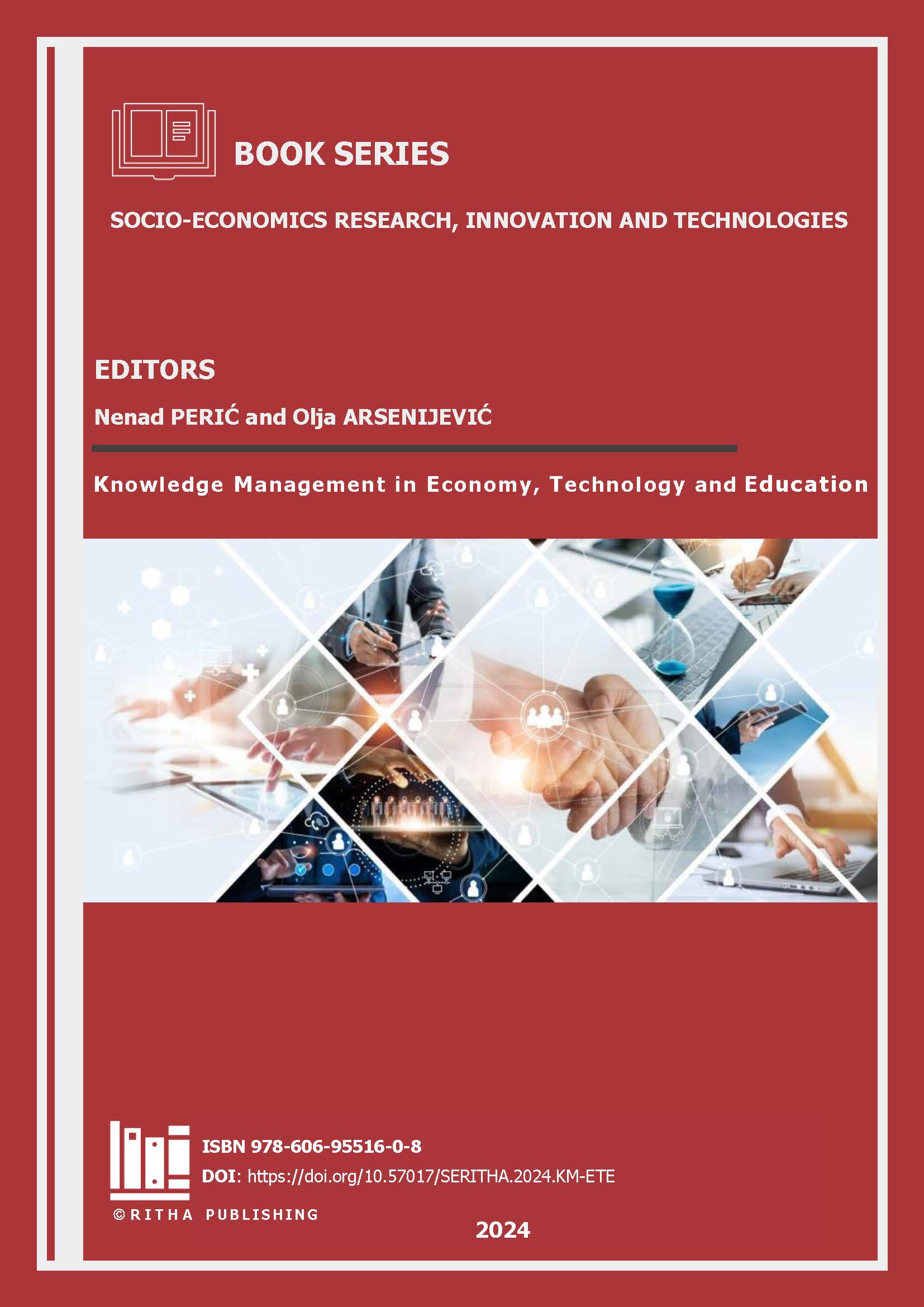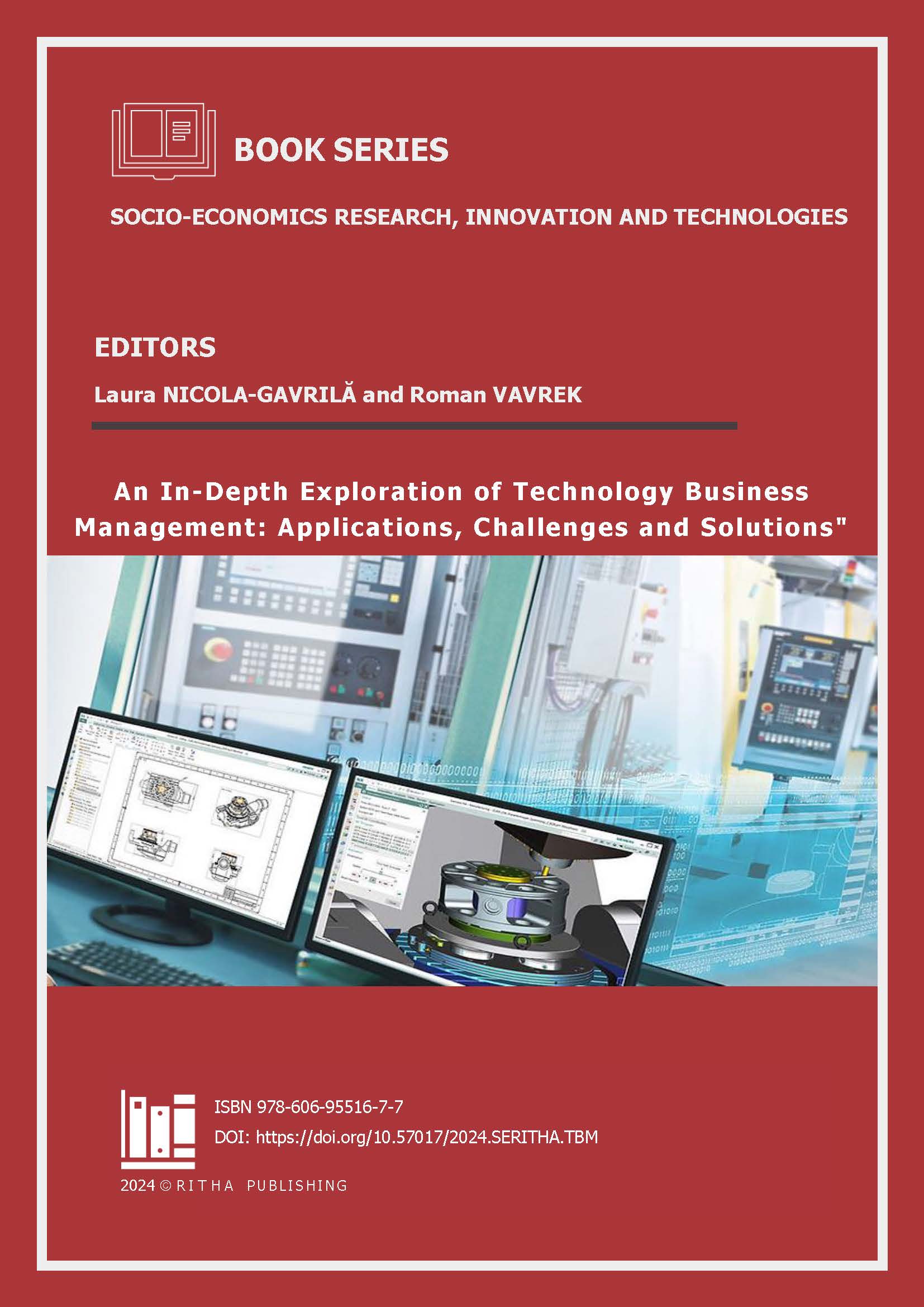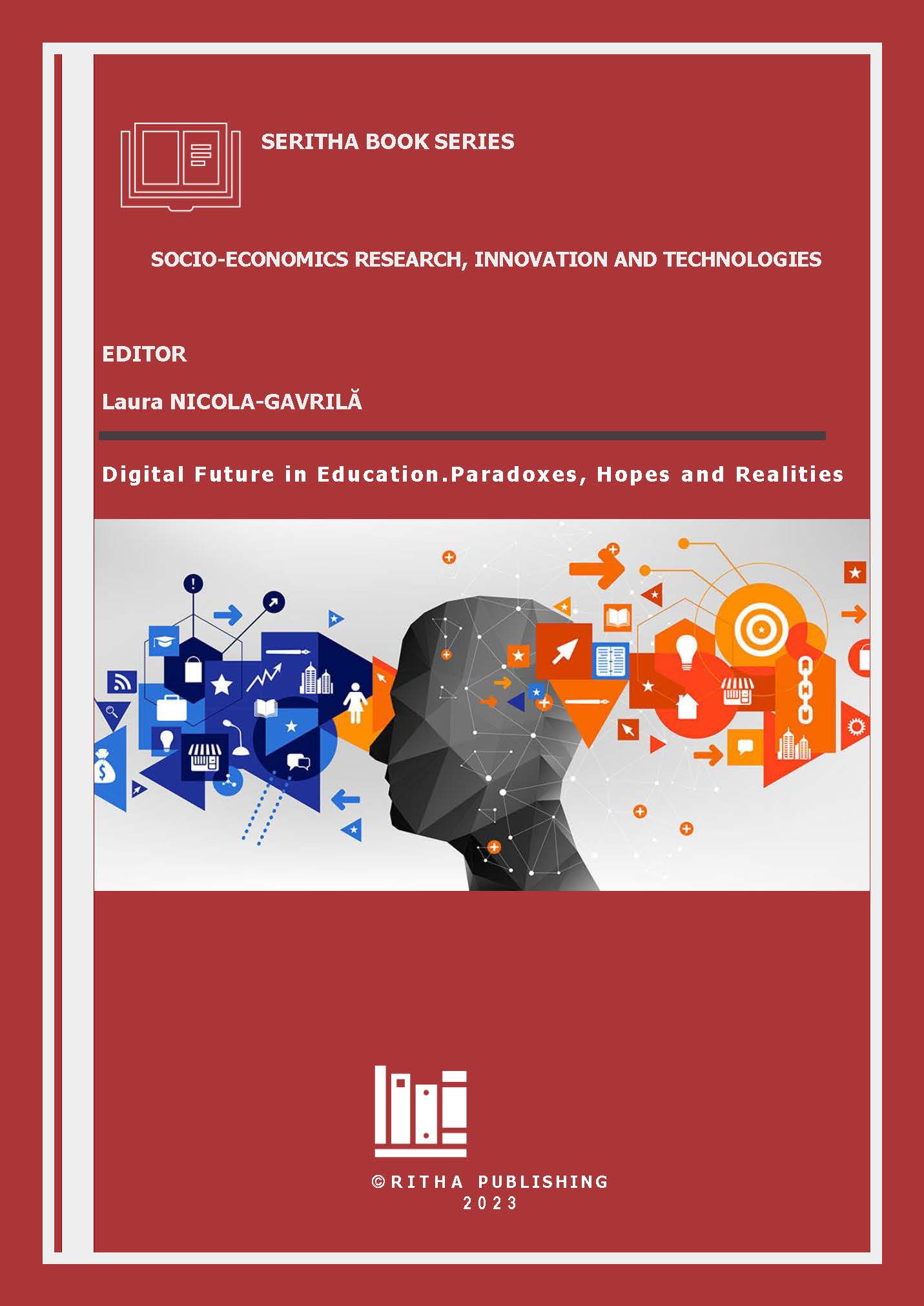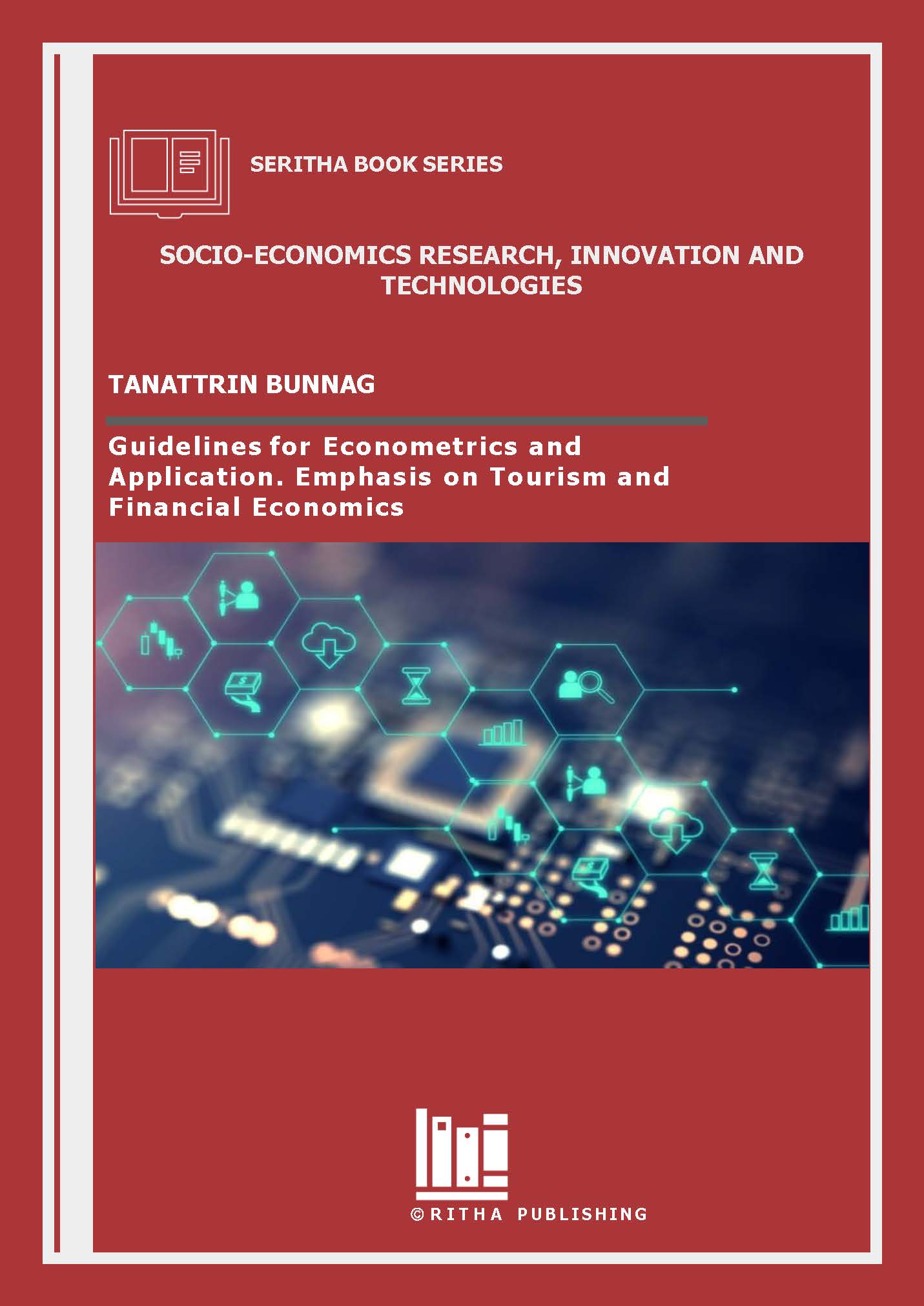Socio-Economics Research, Innovation and Technologies
ISSN Print: 3008-4229
ISSN Online: 3008-4237
L-ISSN: 3008-4229
Coordinator:
-
Socio-Economics Research, Innovation and Technologies (abbrev. SERITHA) is a book series aims to open doors to research and innovation for any learning and discovery process of education, science and technology.
SERITHA is a series of peer-reviewed books based on conceptual and empirical contributions in the field of economics and social sciences, in which challenges always start with an issue, and the learning occurs in the journey of researching, investigating, and discovering different solving pathways. This series particularly features conceptualised ideas, science-based approaches for the domains of economics & social sciences as a means to foster qualitative and quantitative research in the academic environment.
The BOOKS of this SERIES are published by RITHA PUBLISHING HOUSE.
See our Active Call for Chapters
Published BOOKS and their CHAPTERS are INDEXED in Central and Eastern European Online Library and EBSCOhost Research Platform.
Publishing Policies & Ethical Standards
RITHA Publishing are committed to upholding the highest standards of publication ethics, and as a publisher, we take every possible measure against publication malpractice. Authors who submit proposals to one of our book series must attest that their work is original and unpublished and is not under consideration for publication elsewhere.
In this regard, Chapter_Copyright Transfer Form are filled and signed by each author or the corresponding author. In addition, authors confirm that their chapter or book proposal is their own, that it is not a work of plagiarism, and that they have disclosed actual or potential conflicts of interest or partial benefits associated with the work.
Our Editorial Policies and Ethical Standards sustain the combined efforts of authors, editors, evaluator boards, and reviewers to produce responsible research publications in any forms of content as: articles in Journals, chapters in Books, books in Series; Monographs, Conference Proceedings. More than these, our Publication Ethics and Malpractice Statement are based on COPE’s Code of Conduct and Best Practice Guidelines and clearly establish the following:
§ Duties of Editors § Duties of Reviewers
§ Duties of Authors § Duties of Publishers
DUTIES OF EDITORS
Final Decision on the Publication of Books
The Series Coordinator of book series published are responsible for deciding which of the manuscripts submitted shall be published or which book proposals are accepted for publication. The Editor may also confer with other editors or reviewers in making publication decisions.
Review of a book proposal
Books’s series editors are the initial quality control for book proposals - but the proposals also must be reviewed by at least one other reviewer. Further, we conduct random checks on the other listed editors or authors on such submissions to ensure that authors/editors are aware that they have been included in proposals.
The Editor of the book also ensure that each manuscript undergoes at least a 'blind' peer review by a minimum of two reviewers. Also, before considering the chapter, we use specialised tools to check for plagiarism and immediately reject any paper with a more than 15% similarity score.
Disclosure and conflicts of interest
Unpublished materials disclosed in a submitted manuscript must not be used by anyone who has a view of the manuscript in his or her own research without the express written consent of the author. We refresh and update our reviewer's database and undertake periodic spot checks to ensure that all referees act with integrity.
A manuscript submitted by a RITHA Publishing’s editor or member of International Editorial Board will be handled by one of the other associate editors from Managing Board who are not at the same institution as the submitting author. The chosen associate editor will select referees and make all decisions on the papers. Moreover, the publishing system, does not allow a conflicted editor to be assigned to work to relevant information concerning their manuscript. If the case, a conflicted editor will be blocked from participating in any discussion among the editors pertaining to such manuscripts.
A manuscript submitted by an author who is at the same institution as one of the editors will be handled by another editors who is not at that specific institution. This procedure includes continuing employment or negotiations for prospective employment at the institution of the author(s), which could affect or be affected by the peer review outcome. Another editor will select reviewers and make all decisions on the paper.
Fair play
Manuscripts shall be evaluated solely on their intellectual merit without regard to the author's race, gender, sexual orientation, religious belief, ethnic origin, citizenship, or political philosophy. Our move towards automatised double-blind reviewing system is aimed to help ensure this.
Confidentiality
The Editors and our editorial staff must not disclose any information about a submitted manuscript to anyone other than the corresponding author, reviewers, potential reviewers, other editorial advisers, and the publisher.
DUTIES OF REVIEWERS
Confidentiality
Information regarding manuscripts submitted by authors must be kept confidential and treated as privileged information.
Standards of Objectivity
Reviews will be conducted objectively. There shall be no personal criticism of the author. Reviewers should express their views clearly with supporting arguments. We aim to create own automatised reviewing system. At the moment, all are blind reviews, and some are double-blind.
Acknowledgment of Sources
Reviewers should identify relevant published work that the authors have not cited. The relevant citation should accompany any statement that had been previously reported elsewhere. A reviewer should also call to the Editor's attention any substantial similarity or overlap between the manuscript under consideration and any other published paper they have personal knowledge.
Conflict of Interest
Reviewers should not review manuscripts in which they have conflicts of interest resulting from competitive, collaborative, or other relationships or connections with the authors, companies, or institutions connected to the papers.
The RITHA publishing attempts to prevent conflicts of interest by not inviting reviewers from the same institutions as authors. However, previous relationships or places of employment may not be obvious, therefore the invitation to potential reviewers, the editors will ask that they decline to review if they know, or guess the identity of the author.
Following useful resources to refer for more information on Conflict-of-Interest policies, existing codes of practices and more general good practice in relation to journal publication ethics can find here:
View Guidelines published by the International Committee of Medical Journal Editors (ICMJE).
DUTIES OF AUTHORS
Reporting standards
Authors of reports of original research should present an accurate account of the work performed and an objective discussion of its significance. All underlying data must be represented accurately in the paper. A paper should contain sufficient detail and references to permit others to replicate the work. Fraudulent or knowingly inaccurate statements constitute unethical behaviour and are unacceptable.
Data Sharing, Access, and Retention
Authors may be asked to provide the raw data in connection with a paper for editorial review and should be prepared to provide public access to such, if practicable, and should, in any event, be ready to retain such data for a reasonable time post-publication.
Originality and Plagiarism
Authors must ensure that they have written entirely original works, and if the authors have used the work and/or words of others, this must be appropriately cited or quoted.
Multiple Publications, Redundant or Concurrent Publication
An author should not, in general, publish manuscripts describing essentially the same research in more than one journal or primary publication. Concurrently submitting the same manuscript to more than one journal constitutes unethical publishing behaviour and is unacceptable.
Acknowledgment of Sources
Acknowledging the work of others must always be properly cited. Authors should cite publications that have been influential in determining the nature of the reported work.
Authorship of the Paper
Authorship should be limited to those who have made a significant contribution to the conception, design, execution, or interpretation of the reported study. All those who have made significant contributions should be listed as co-authors. Where others have participated in certain substantive aspects of the research project, they should be acknowledged or listed as contributors.
Disclosure and Conflicts of Interest
All authors should disclose in their manuscript any financial or other substantive conflicts of interest that might be construed to influence the results or interpretation of their manuscript. All sources of financial support for the project should be disclosed.
Requested Changes
All authors are obliged to make requested changes and correct mistakes in a timely manner.
Fundamental Errors in Published Works
Should an author discover a significant error or inaccuracy in their published work, it is the author's obligation to promptly notify us and cooperate with us to retract or correct the article.
DUTIES OF PUBLISHER see here.
Complaints and Appeals Process
As publishers, we aim to be completely transparent and fair in dealings with all authors and editors. Should an author, reviewer, Editor, or representative need to file a complaint, appeal a decision, or share other information, please send an email detailing the appropriate information (title, author, dataset, etc.) to office@ritha.eu with subject line: complaints
RITHA Publishing treats all such communications seriously, confidentially, and will reply promptly.
Please maintain your professionalism while communicating with us. Any unprofessional conduct will not be tolerated by the editorial board or the Publisher and your complaint will not be considered.
⦁ Coordinator Serie:
- business technologies, artificial intelligence, knowledge representation
⦁ International Editorial Board:
- management technologies; decision making; project and product development management
- cluster economics
- business & economics, mathematical methods in social sciences
- economics, technological development
- business and organizational innovation
- business information technologies, virtual organisation, digital transformation, knowledge management, collaborative technologies
- cognitive economy
- data management; machine learning, dynamic panel data, quantitative research methods for policy evaluation
- sustainable development goals; regional development; sustainable ecosystem; corporate social responsibility
- economic growth, innovations, sustainable development
- quantitative & qualitative research methods, management





